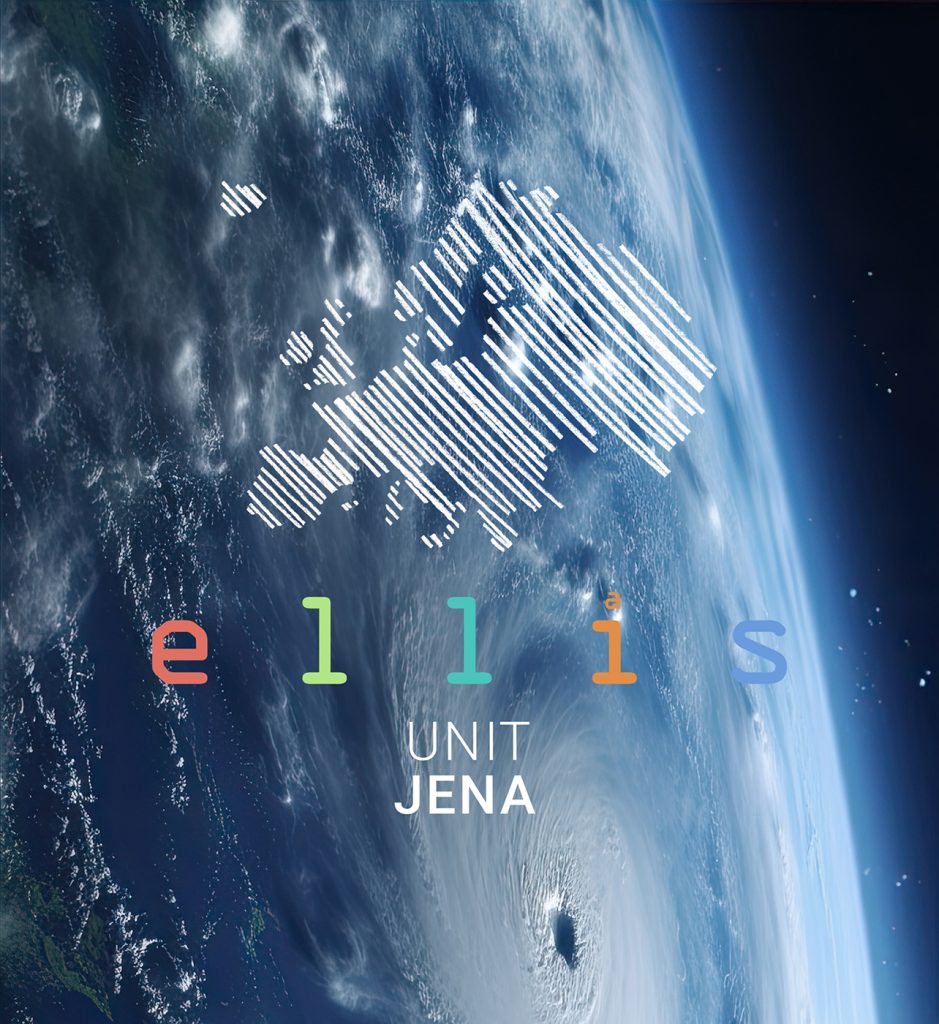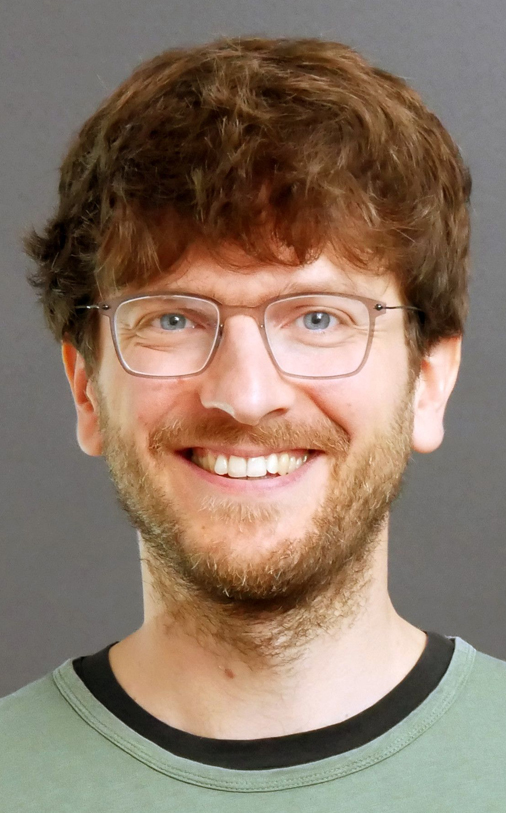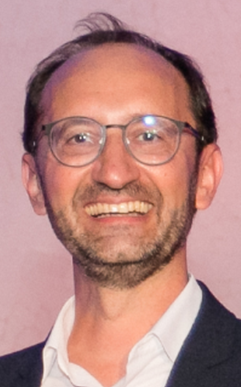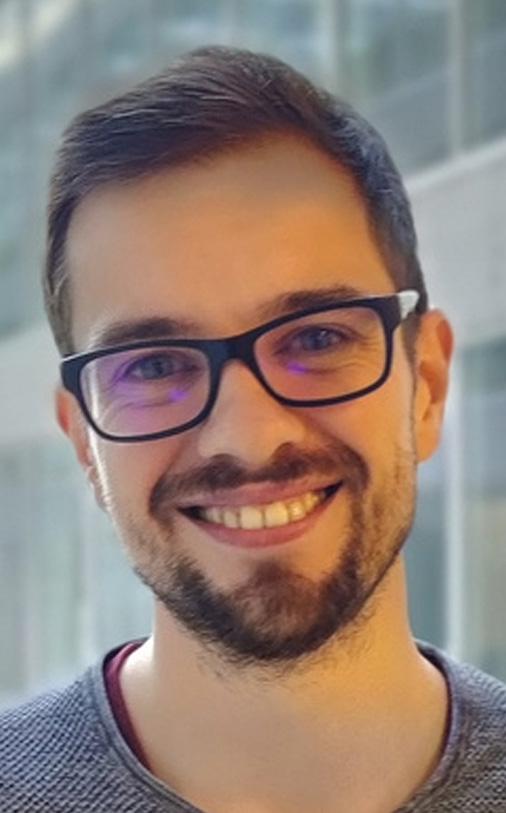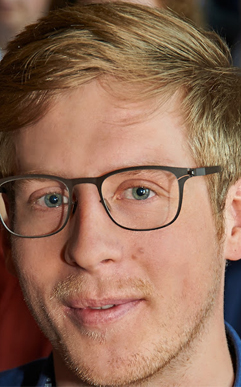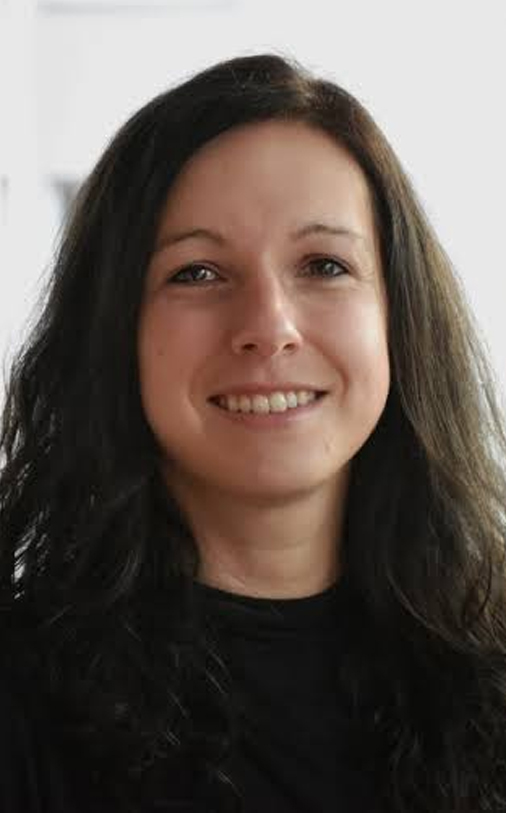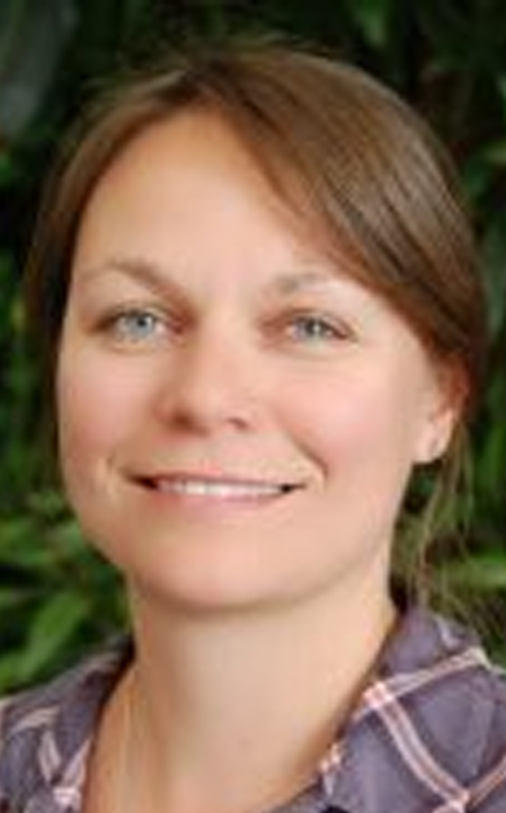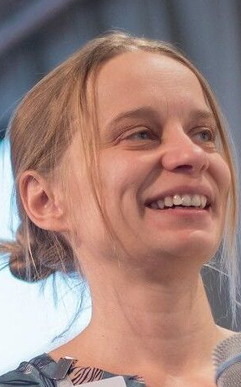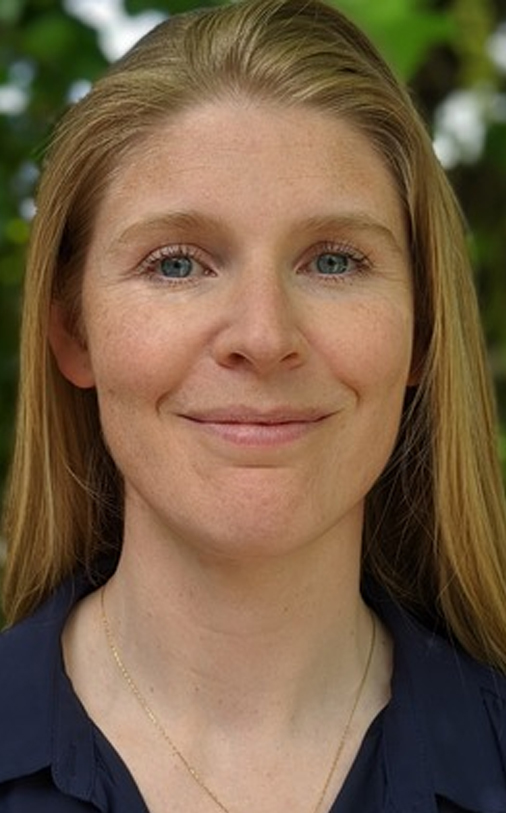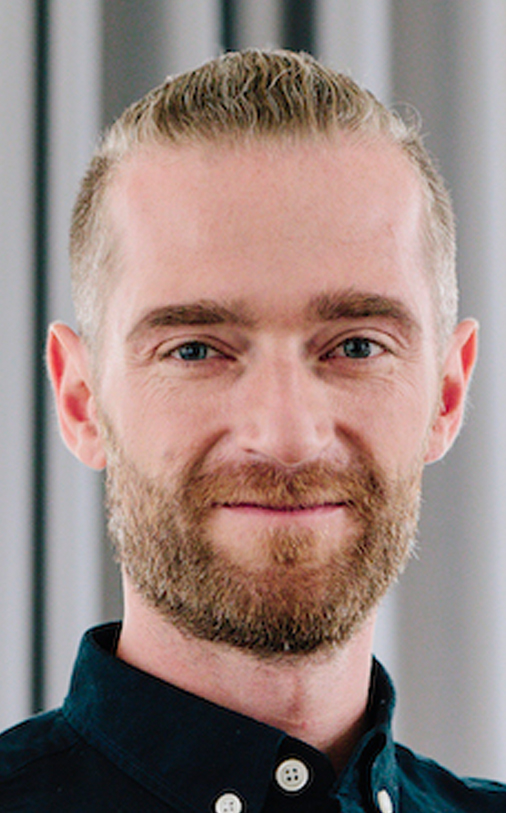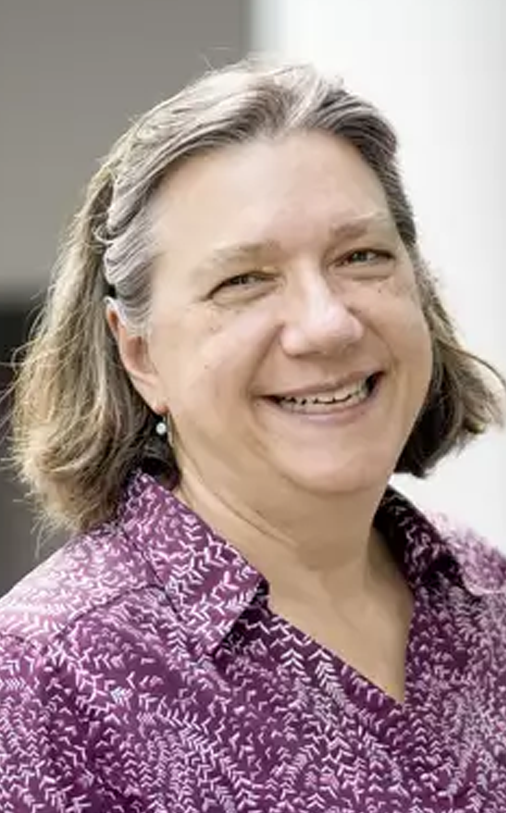Keynotes
Each morning of the ELLIS Unit Jena Summer School, renowned researchers will deliver keynote lectures on the four thematic areas—Interpretable, Hybrid, Large-Scale, and Robust Machine Learning in Environmental Sciences—showcasing cutting-edge research in AI and Earth system sciences. Covering topics from predictive modeling and geospatial data analysis to interpretable AI for ecosystems, agriculture, and climate monitoring, the keynotes span foundational theory to real-world applications, offering both inspiration and practical insights.
TUESDAY, SEPTEMBER 2, 2025
9:00 – 9:45 | Keynote 1 – Robust
Jonas Peters
TUESDAY, SEPTEMBER 2, 2025
9:45 – 10:30 | Keynote 2 – Hybrid
Gustau Camps-Valls
WEDNESDAY, SEPTEMBER 3, 2025
9:00 – 9:45 | Keynote 3 – Robust
Marc Rußwurm
THURSDAY, SEPTEMBER 4, 2025
9:45 – 10:30 | Keynote 4 – Large-Scale
Frederik Kratzert
THURSDAY, SEPTEMBER 4, 2025
9:00 – 9:45 | Keynote 5 – Interpretable
Ribana Roscher
THURSDAY, SEPTEMBER 4, 2025
9:45 – 10:30 | Keynote 6 – Large-scale
Koreen Millard
THURSDAY, SEPTEMBER 4, 2025
14:00 – 14:30 | Keynote 7 – Social Impact
Stefanie Lux
FRIDAY, SEPTEMBER 5, 2025
9:00 – 9:45 | Keynote 8 – Interpretable
Maike Sonnewald
FRIDAY, SEPTEMBER 5, 2025
9:45 – 10:30 | Keynote 9 – Hybrid
Niklas Boers
FRIDAY, SEPTEMBER 5, 2025
11:00 – 11:45 | Keynote 9 – Capstone Talk
Susan E. Trumbore
TUESDAY, SEPTEMBER 2, 2025
9:00 – 9:45 | Keynote 1 – Robust
Title:
Causality, Hidden Confounding, and RobustnessAbstract:
Abstract:
When learning predictive models on real world data, we usually expect them to work well on test data that follow the same distribution as the training data. Often, however, such an assumption is unrealistic. Instead, we would like to apply the fitted model to different locations, to different times or under different boundary conditions. How to learn models that perform as well as possible in such difficult settings is mainly an unsolved problem. In this talk, we discuss a few ideas and draw connections to causality and hidden confounding. It hopefully serves as an inspiration to think about this interesting, general, and important problem.
Bio:
Jonas is interested in using different types of data to predict the effect of interventions and to build statistical methods that are robust with respect to distributional shifts. He seeks to combine theory and methodology and tries to let real world applications guide his research. His work relates to areas such as causal inference, distribution generalization, dynamical systems, policy learning, graphical models, and independence testing. Since 2023, Jonas is professor in statistics at ETH Zurich. Previously, he has been a professor at the Department of Mathematical Sciences at the University of Copenhagen and a group leader at the Max-Planck-Institute for Intelligent Systems in Tuebingen. He studied Mathematics at the University of Heidelberg and the University of Cambridge and obtained his PhD jointly from MPI and ETH.
TUESDAY, SEPTEMBER 2, 2025
9:45 – 10:30 | Keynote 2 – Hybrid
Title:
Hybrid AI Approaches for Earth Science
Abstract:
In Earth system science, the key challenge is not just prediction but inference—understanding variable relationships and building models that are physically plausible, parsimonious, and interpretable. Machine learning excels at approximation, but often disregards bio-geo-physical laws, compromising consistency and trust. Bridging this gap calls for deeper integration of domain knowledge and machine learning.
I will outline a framework for hybrid and physics-aware AI built on three approaches: (1) encoding domain knowledge into models, (2) emulating complex numerical codes, and (3) learning parameterizations for unresolved processes. I will illustrate these ideas with examples ranging from causal hybrid learning for carbon fluxes, symbolic regression for plant traits, and recurrent variational networks for drought monitoring, to physics-constrained deep learning for carbon estimation, invertible networks for forward–inverse aerosol retrieval problems, hybrid GANs for cloud detection, and multisensor fusion and gap-filling.
The goal is to move beyond black-box predictors toward trustworthy, physics-grounded AI—algorithms that extrapolate, generalize, and ultimately advance scientific discovery in the Earth system.
Bio:
Gustau is interested in developing AI methods to tackle relevant environmental and societal problems. From detecting and forecasting extreme events (like droughts, heatwaves and floods), to improve Earth models with AI emulation and novel parameterizations, as well as explaining complex systems like the interconnected Earth with hybrid models, causality and equation discovery. He is a physicist and Full Professor in Electrical Engineering at the Universitat de València, Spain, and leads the Image and Signal Processing (ISP) group, https://isp.uv.es, an interdisciplinary team working at the intersection of AI, Earth observation, and climate sciences. More info in https://www.uv.es/gcamps/cv.html
WEDNESDAY, SEPTEMBER 3, 2025
9:00 – 9:45 | Keynote 3 – Robust
Title:
Learning Robust Environmental Embeddings by Training AI to Play Satellite GeoGuessr
Abstract:
What makes AI models robust when reasoning about geography, climate, or human activity? While explicit geospatial data—like temperature, precipitation, or land cover—can inform models, it’s often incomplete, sparse, or too coarse to generalize well. Instead, we explore how to create implicit, robust environmental embeddings that capture the complex and diverse character of places directly from imagery. This talk introduces a novel approach to learning these embeddings by training AI to play Satellite GeoGuessr—contrastively learning what makes each location unique through satellite images. We present two complementary methods: First, we introduce location encoders—neural networks that learn to map coordinates to rich geospatial representations, storing knowledge in their weights. Second, we describe SatCLIP Earth Embeddings, which trains image and location encoders jointly to produce embeddings that reflect both the visual and contextual identity of a place.
Bio:
Marc is an Assistant Professor of Machine Learning and Remote Sensing at Wageningen University. He holds a background in Geodesy and Geoinformation and completed his Ph.D. in Remote Sensing Technology at the Technical University of Munich. During his doctoral studies, Marc gained international experience through research visits to the European Space Agency, the University of Oxford (as part of the Frontier Development Lab in 2018), the Obelix Laboratory in Vannes, and the Lobell Lab at Stanford University. Following his Ph.D., Marc worked as a postdoctoral researcher at the Environmental Computational Science and Earth Observation Laboratory at EPFL in Switzerland. His research focuses on developing modern machine learning methods to solve real-world challenges in remote sensing, such as classifying vegetation from satellite time series and detecting marine debris in the oceans. He has a strong interest in domain shifts and transfer learning problems that naturally emerge in the context of geographic and temporal data.
THURSDAY, SEPTEMBER 4, 2025
9:45 – 10:30 | Keynote 4 – Large-Scale
Title: Deep Learning for large-scale rainfall-runoff modeling and operational flood forecasting.
Abstract: Floods are one of the most common natural disasters, with a disproportionate impact in developing countries. In these regions, timely and actionable flood warnings are often missing. Google started working on this topic in 2017, first by concentrating on a few countries that are most impacted by devastating floods (e.g. India and Bangladesh), then extending to a handful of other partner countries, before building a model with global coverage in 2021. This was, to a large extent, made possible by the recent advances in deep learning based rainfall-runoff modeling. In this presentation, we will highlight some of the research that was crucial for building such models as well as some of the lessons learned, from operating a global-scale flood forecasting model and collaborating closely with different governmental agencies and non-governmental organizations. Lastly, we will look at ongoing research efforts to improve Google’s flood forecasting system.
Bio: Frederik is a research scientist in the Flood Forecasting team at Google. His academic background is in civil (BSc) and environmental (MSc) engineering, as well as machine learning (PhD). Besides his work and research on the intersection of hydrology and machine learning that mostly focusses on improving reliable and actionable flood forecasts, Frederik also cares deeply about open source software and open data. He is the creator of NeuralHydrology, an open source Python library for training deep learning models in the context of hydrology, and also the creator of Caravan, a global community dataset for large-sample hydrology.
THURSDAY, SEPTEMBER 4, 2025
9:00 – 9:45 | Keynote 5 – Interpretable
Title:
When and How Can Interpretability Help? Reflections from Use Cases in Agricultural and Environmental Sciences
Abstract:
Explainable machine learning is often framed as a tool to build trust. But in scientific applications—such as agriculture and environmental monitoring—its true potential lies elsewhere: in improving models, identifying errors, and generating new insights. In this talk, I will share examples from real-world projects where interpretability tools have helped detect spurious correlations, understand temporal patterns in crop monitoring, and reveal patterns in satellite-based land cover classification. We’ll explore a range of techniques, from saliency maps derived by Grad-CAM to Shapley-based time-series analysis and activation space exploration. Rather than offering generic praise for explainable machine learning, the focus will be on when it actually helps, what we can learn from it, and what to watch out for. The goal is to illustrate how explainability, when used thoughtfully, can move us closer to meaningful, insight-driven machine learning.
Bio:
Ribana is a Professor of Data Science for Crop Systems at the University of Bonn and Forschungszentrum Jülich. Her research lies at the intersection of machine learning, remote sensing, and agricultural and environmental sciences. Ribana develops methods for interpretable, uncertainty-aware, and data-centric machine learning, with a focus on understanding plant processes and enabling scientific discovery from complex, often imperfect data. Her work addresses challenges such as learning under real-world conditions, dealing with sparse or noisy labels, and improving model explainability to support decision-making and gain new insights into crop and ecosystem dynamics.
THURSDAY, SEPTEMBER 4, 2025
9:45 – 10:30 | Keynote 6 – Large-scale
Title:
AI in Large Scale Earth Observation: From Models to Measurable Environmental Impact
Abstract:
AI methods have greatly expanded the scale and speed at which Earth observation data can be processed, enabling land cover classification, change detection, and environmental modeling to be conducted efficiently from virtually anywhere with the right data science skills. Yet many of these methods were developed for tasks outside of Earth observation domains, and their adoption may overlook core challenges of spatial heterogeneity, spatial autocorrelation, scale, and data scarcity, which are relevant to geographers, environmental and climate scientists. This talk will explore how AI models are being applied and adapted to answer questions in an earth observation context. Topics will include peatland ecosystem mapping, wildfire susceptibility modelling, and the use of multi-sensor and multi-scale data to produce large-scale data products. Emphasis will be placed on the essential role of validation, not only through field data, but also how we design, evaluate, and interpret these models. There is a need to develop domain-appropriate models and establish transparent validation strategies that build confidence in large-scale environmental applications. Achieving this requires not only reporting accuracy but also generating geospatial outputs that are meaningful and interpretable to both scientists and policy makers.
Bio:
Koreen is an Associate Professor at Carleton University. Her research lies at the intersection of geomatics, physical geography, and big data science. She focuses on ecosystem monitoring and the extraction of biophysical parameters from remotely sensed imagery, while critically evaluating how bias and uncertainty impact the application of these tools across diverse landscapes. By integrating remote sensing data with extensive field monitoring, Koreen’s work untangles the complex interactions between hydrology, vegetation, and climate. This approach improves predictions of how wetlands and northern ecosystems respond to environmental change. Recently, much of her research has concentrated on peatland wildfires, employing time series analyses of SAR and multispectral imagery to better understand the conditions under which peatlands ignite and burn.
THURSDAY, SEPTEMBER 4, 2025
14:00 – 14:30 | Keynote 7 – Social Impact
Title:
Before Disaster Strikes: AI-Enhanced Anticipatory Action
Abstract:
Anticipatory Action (AA) offers a novel and efficient approach within the toolbox of humanitarian and disaster risk management practitioners. Unlike traditional response methods that mobilize resources only after a disaster has struck, AA leverages forecasts and risk analyses to trigger humanitarian measures before an extreme event occurs. The approach has shown to effectively protect lives and livelihoods from the humanitarian impacts of predictable extreme events in a proactive, cost-efficient, and dignified way. With the rapid developments in Artificial Intelligence, there is growing interest to see how AI can be used to enhance the timeliness, precision, and effectiveness of AA. The talk will provide an insight into how anticipatory action was developed and how it works. It will briefly showcase how AI is already being used in anticipatory action, point out gaps and concern that remain, and look into some ideas for potential use.
Bio:
Stefanie is the Anticipatory Action Lead at German Red Cross (GRC). Based on forecast information and risk analysis, anticipatory action releases humanitarian funding ahead of extreme events for pre-agreed activities aiming to reduce the suffering and losses caused. Stefanie coordinates the thematic work of GRC in this field in 25 countries and is responsible, with her team, for contributing to the methodological development of the approach at global level in cooperation with other Red Cross partners, scientists, UN agencies and NGOs. Before joining GRC in Berlin, she has worked for different humanitarian organizations in Switzerland, Sierra Leone, Liberia and Haiti. She holds a Master’s degree in international law from the Graduate Institute of International Studies in Geneva.
FRIDAY, SEPTEMBER 5, 2025
9:00 – 9:45 | Keynote 8 – Interpretable
Title:
Beyond the AI Bonanza: Interpretable Machine Learning for Physical Oceanography
Abstract:
Artificial Intelligence offers transformative potential in climate science, and while there seems to be a bonanza across the board, it is yet unclear where and how transformative new knowledge can be gained. AI can solve problems that have eluded conventional approaches, but can we trust the solutions? The question key to push the envelope of understanding is what the AI has learned to make its predictions. I present algorithms and frameworks related to supervised and unsupervised AI tailored to gaining knowledge, and we will visit problems from physical oceanography. First, we will use NNs to determine if equations have been learned for an idealised version of the Atlantic circulation undergoing tipping-points, focusing on semantics and feature attribution. Second, moving to fully realistic ocean general circulation models, we use clustering and manifold learning to ask: Can we determine geographical regions where certain terms dominate? This work serves both as an exploration of AI’s promise and a blueprint for responsibly navigating the challenges AI presents in climate science.
Bio:
Maike is an Assistant Professor of Computer Science at UC Davis. She leads the Computational Climate and Ocean Group, where she tackles grand challenges at the intersection of oceanography, climate science, and artificial intelligence. Her interdisciplinary lab develops methods to enhance ocean and climate understanding, focusing on sea level change, large-scale ocean dynamics, climate variability, and biogeochemistry. Blending theory, observations, and computation, Maike pioneers data-driven and physics-informed machine learning approaches for sparse data inference and long-range forecasting. Her research supports improved climate projections and has real-world impact — contributing to NOAA’s AI Strategy (2021–2025), informing New Zealand’s marine protection legislation, and being cited by the European Parliament and the World Meteorological Organization. She has delivered over 90 invited talks, including at the United Nations ITU, NOAA, and the U.S. Department of Energy. She serves as Associate Editor for the journals Artificial Intelligence for the Earth Systems (AMS) and Machine Learning: Earth (IOP), and publishes regularly in leading journals such as Science and Nature.
FRIDAY, SEPTEMBER 5, 2025
9:45 – 10:30 | Keynote 9 – Hybrid
Title:
Machine Learning for Earth system modelling
Abstract:
The Earth system is a highly complex system with strongly nonlinear interactions between its components across many time and space scales. It is thus inherently difficult to model numerically in terms of discretized physical equations, even though many of the underlying laws of motion, such as the fluid dynamical equations governing atmospheric and ocean dynamics, are well-known. Moreover, many relevant processes, such as those operating below computationally feasible grid resolutions, or emergent processes related to vegetation dynamics and its interaction with the atmosphere, are difficult to capture in traditional numerical Earth system models (ESMs). In my talk I will show how Machine Learning techniques offer unique ways to learn missing information for Earth system prediction, including its response to forcing in the context of anthropogenic climate and land use change, directly from observational data. I will present several recent approaches to combine physical models with (generative) Machine Learning in the form of hybrid ESMs. Focus will be several key challenges, including differentiability of physical model components to allow efficient and transparent calibration, physical constraints for dynamics learned from data, and generative Machine Learning for improved high-resolution representation of processes relevant for assessing the impacts of anthropogenic climate change.
Bio:
Niklas is Professor of Earth System Modelling at the Technical University of Munich (TUM) and leads the “Artificial Intelligence” group at the Potsdam Institute for Climate Impact Research (PIK). As a mathematical physicist, he has worked on a variety of problems related to theoretical Earth system dynamics. His main focus lies on extreme events and abrupt transitions in the context of anthropogenic climate change. Current key topics in his research include methods to combine physics-based and data-driven approaches for modelling different parts of the Earth system.
FRIDAY, SEPTEMBER 5, 2025
11:00 – 11:45 | Keynote 9 – Capstone Talk
Title:
Why we still need field science in the age of AI
Abstract:
We have only had the ability to observe the complete earth’s surface for the last ~40 years. Regular global observations now include reflected light, direct surface emissions, absorption/emission by gases in the atmosphere, and most recently returns from laser or microwave emissions from space. Much has been learned from combining these data with weather and sparse flux observations to upscale and improve global estimates of ‘fast’ processes like photosynthesis and respiration. However, not everything can (yet) be seen from above, and I will use the time to give a couple of examples of why we still need to consider processes that operate on longer timescales (disturbance/recovery and soil development) to understand and interpret what is observed now.
Bio:
Sue is Director of the Department of Biogeochemical Processes at the Max Planck Institute for Biogeochemistry in Jena and Honorary Professor in the Faculty of Chemistry and Earth Sciences at Friedrich Schiller University. Trained in geology and geochemistry (B.S. University of Delaware; M.Sc., M.Phil., and Ph.D. from Columbia University), she specializes in applying accelerator mass spectrometry measurements of radiocarbon (^14C) to questions in ecology, soil biogeochemistry, and terrestrial carbon cycling. Her research uses isotopes and tracers to investigate exchanges of energy, water, and greenhouse gases between terrestrial ecosystems—particularly tropical forests—and the atmosphere. Before joining the Max Planck Institute for Biogeochemistry in Jena in 2009, she was Professor in the Department of Earth System Science at the University of California, Irvine, a position she still holds, and conducted postdoctoral research at Lawrence Livermore National Laboratory, Columbia University, and ETH Zurich.
